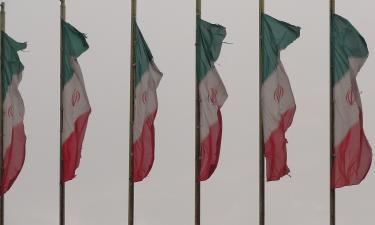The Death of the Bill of Rights in America
 The Bill of Rights is moribund in today's America because in the view of many powerful people it should never have been born.
The Bill of Rights is moribund in today's America because in the view of many powerful people it should never have been born.
James Madison said two centuries ago, "We are free today substantially, but the day will come when our Republic will be an impossibility. ... A Republic cannot stand upon bayonets, and when the day comes, when the wealth of the nation will be in the hands of a few, then we must rely upon the wisdom of the best elements in the country to readjust the laws of the nation to the changed conditions." Has this day arrived?
It is sanctified by words during the best of times, when it is not needed; It is ignored by deeds during the worst of times, when it is needed most; It is presented as the bedrock of American freedom; It is in reality as fragile as a pane of glass; It is praised when one requires its protections; It is scourged when one’s foe demands those same protections; It is promoted as a vibrant, living document; It is dying a slow, but certain, death.
With apologies to Charles Dickens for paraphrasing the opening sentence of his immortal classic A TALE OF TWO CITIES, this opening passage describes the demise of a single document: The Bill of Rights.
The Bill of Rights is moribund in today’s America because in the view of many powerful people it should never have been born. During the Constitutional Convention of 1787, the delegates, having recently won a war against a monarchy, were astutely aware of the corrupting influence of political power, particularly when concentrated into too few hands.
James Madison went so far as to state, "The truth is that all men having power ought to be mistrusted. So a system of "checks-and-balances" was devised to ensure that no individual, or branch of government, would obtain absolute power.
But a conflict arose over what rights and freedoms, if any, should be extended to the governed. Some delegates believed the "checks-and-balances" system alone guaranteed that the government would never abuse its authority, and were distrustful of vesting too much freedom in the common people, whom Alexander Hamilton described as "a great beast."
Others, however, recognized that the potential for abuse still existed. In support of this belief, Patrick Henry remarked: "Show me that age and country where the rights and liberties of the people were placed on the sole chance of their rulers being good men, without a consequent loss of liberty! I say that the loss of that dearest privilege has ever followed, with absolute certainty, every such mad attempt."
So, to ensure ratification of the Constitution, it was agreed that amendments would be added to acknowledge there were certain rights and freedoms so sacred to the individual they could not be removed or suppressed, either by the government or the "tyranny of the majority." On December 15, 1791 the first ten of these amendments, known collectively as the Bill of Rights, went into effect.
When America was primarily an agrarian culture, the fundamental weaknesses of the Bill of Rights largely remained dormant. But, as the nation became more industrialized and as wealth and power in the private economic sector became concentrated into fewer hands, these weaknesses became more palpable, revealing that the tyranny to be feared was not from the majority of the people, but the minority of the people with the majority of the money.
Even a cursory examination of the evolution of the Bill of Rights reveals two such weaknesses: First, the Bill of Rights only dictates what the government CANNOT do. (For example, it cannot interfere with an individual’s right to freedom of speech or religion, and it cannot deprive a person of the right to vote because of race or gender). It does not (with limited exceptions regarding the rights of criminal defendants) place any affirmative duties upon the government; Second, the Bill of Rights (again with limited exceptions) does not apply to the private economic sector. Just because somebody composes a song does not mean any radio station is obligated to play it; Just because somebody writes a Letter to the Editor does not mean any newspaper is obligated to print it; Just because somebody authors a book does not mean any company is obligated to publish it; And just because somebody produces a motion picture does not mean any movie theater or television
station is obligated to show it.
The first problem these weaknesses create is fear of economic retaliation, also known as a "chilling effect," which can detrimentally affect one’s willingness or ability to exercise Constitutional rights. Most Americans depend upon the private sector for their incomes and material needs and desires. As the late playwright Rod Serling once wrote: "They pay you a certain amount each year until you need that amount to live on. Then you spend the rest of your life afraid they’ll take it away from you." Therefore, if the exercise of a Constitutional right, such as freedom of speech, could result in the loss of employment and the inability to provide food, clothing, health care, education and shelter for one's loved ones, all but the most intrepid will remain silent.
This consistently confines the ability to exercise basic Constitutional rights to those individuals or groups wealthy enough to weather any economic reprisals. That reality was dramatically accentuated during the "Red Scare" of the 1950s, when Joseph McCarthy’s Senate Committee, in conjunction with the House Un-American Activities Committee (HUAC), employed a tactic known as "prescriptive publicity." People summoned before these committees who were perceived as hostile or uncooperative were routinely fired from their jobs and "blacklisted" from future employment. The late Mark Goodson, a television game show producer during the McCarthy era, stated in a 1991 New York Times article "If I’d Stood Up Earlier . . ." that he had even been asked to fire
an employee simply because she had the same name as a suspected communist.
Although occasional concerns were raised about the devastating impact McCarthyism was having on the Bill of Rights, critics were hastily silenced by the fear of being labeled "communist sympathizers, fellow-travelers, or un-American." Tragically, as McCarthy informant Harvey Matusow detailed in his book FALSE WITNESS, informants who had been encouraged and/or paid to lie were the primary accusers of many of the people whose lives were destroyed during this period.
Times have not changed very much. In recent months actors like Whoopi Goldberg and Danny Glover lost corporate sponsorships because of their political activities and the Dixie Chicks were blacklisted from radio stations owned by Cumulus Media and Clear Channel. Those who recognizedthe lies of George W. Bush and/or opposed the Iraqi war were easily
muzzled by accusations of being "unpatriotic, un-American" or "failing to support the troops." And, just a few days ago, Sinclair Broadcasting Group, owner of sixty-two television stations throughout the United States, fired its Washington Bureau Chief Jon Leiberman after Leiberman criticized Sinclair’s plans to broadcast over public airwaves, roughly two weeks before the election, a documentary hostile to presidential candidate John Kerry. (In a case of ironic justice, Sinclair itself, after suffering economic retaliation from its shareholders, chose not to air the anti-Kerry documentary in its entirety).
Sadly, even if poor or middle-class people suffer no economic retaliation from an employer for the exercise of a Constitutional right, they still face the specter of "civil law." Although speech is usually not punishable in a criminal sense, if it is found to be libelous or slanderous monetary penalties are often imposed upon the speaker.
The positive aspect of civil law, as demonstrated by the work of organizations such as the Southern Poverty Law Center, is that organizations or individuals who incite others to violence are often compelled to financially compensate those victimized by this violence. The negative aspect is the proclivity of wealthy individuals or organizations to file SLAPP suits--an acronym meaning "Strategic Lawsuits (or Litigation) Against Public Participation"--against members of the poor or middle-class who have engaged in speech activities as mundane as writing a letter to their local newspaper. Although those filing SLAPP suits know they have little chance of winning, their strategy is to inflict emotional distress and financial hardship
upon those engaged in speech activities, thereby discouraging others from engaging in similar speech.
Although statements presented as factual are libelous and/or slanderous if found to be false and injurious to one’s reputation, opinions are protected by the Bill of Rights. Unfortunately the line of demarcation between what constitutes a statement of fact and an opinion is often
blurred. By forcing a court to determine whether something is fact or opinion, those filing SLAPP suits can delay the timely publication or dissemination of speech materials. For example, the release of Peter Matthiessen's book IN THE SPIRIT OF CRAZY HORSE, about imprisoned Native-American activist Leonard Peltier and the American Indian Movement (AIM),
was delayed for several years because of allegations it libeled some of the people mentioned therein.
This leads to the second problem: While the wealthy and powerful are often the ones most capable of exercising their constitutional rights, they are also the ones most capable of denying those rights to others through the use of censorship.
Besides the previously mentioned example of this tactic being employed by Cumulus Media and Clear Channel, there has also been censorship through intimidation, as evidenced by CBS Television’s refusal to air THE REAGANS, a mini-series that right-wing critics claimed did not display the former president of the United States, or his family, in a favorable manner. When Showtime, a cable-based movie channel, decided to air THE REAGANS instead, Republican (GOP) National Committee Chairman Ed Gillespie, who apparently (to paraphrase the late comedian Will Rogers) never met a hypocrisy he didn't like, said "Misleading a smaller audience of viewers is not a noble response to the legitimate concerns raised about this program."
True to this right-wing tradition, the previously mentioned Sinclair Broadcasting Group refused to let its ABC affiliates air a "NIGHTLINE" news segment where the names of Americans killed in Iraq were read, claiming the segment was making "a political statement." Also some theater chains, primarily in the Midwest, refused to air Michael Moore's documentary FAHRENHEIT 9/11, allegedly for the same reason.
Several radio stations owned by Clear Channel, however, had no hesitation about sponsoring pro-war rallies, and neither the GOP nor Michael Powell, Republican head of the Federal Communications Commission (FCC) and son of Bush lapdog Colin Powell, found anything ignoble, illegitimate, illegal or hypocritical about Sinclair Broadcasting’s original plan to televise the anti-Kerry documentary.
Although Sinclair Broadcasting endeavored to camouflage as "news" this propaganda piece attacking Kerry’s military record in Vietnam and/or his anti-war efforts at home, many commentators have pointed out that Sinclair is, in actuality, cynically attempting to enhance its own profits at the expense of the public interest. Powell’s FCC, under the pretext of creating "greater diversity," has consistently sought to generate more profits for right-wing, pro-Bush media outlets by permitting even greater concentration of media ownership. If John Kerry is elected president, Powell will no longer have his coveted, nepotism-obtained position, and the push for more concentrated media ownership will have ended.
In response to Powell’s disingenuous efforts and Sinclair’s profit-motivated impetus, FCC Commissioner Michael J. Copps proclaimed: "This is an abuse of the public trust. And it is proof positive of media consolidation run amok when one owner can use the public airwaves to blanket the country with its political ideology--whether liberal or conservative. . . . This is the same corporation that refused to air Nightline’s reading of our war dead in Iraq. . . . Sinclair and the FCC, are taking us down a dangerous road."
Naturally what Sinclair, Powell, the GOP, the FCC and their right-wing media sycophants hope the public will overlook is the fact that neither George W. Bush nor Dick Cheney even served in Vietnam. Bush avoided the war by using his family's influence to get into the National Guard, and Cheney obtained five deferments.
Yet, while many may have disagreed (and still disagree) with Kerry's words and actions, he at least spoke with the courage of his convictions. Contrast this with Bush and Cheney, whose only excuse for avoiding the war was that he had "other priorities."
It is one thing to be courageous enough to speak out with the knowledge that one day this speech could be used against you. It is quite another to be too cowardly to speak at all. Kerry’s statements against the war in Vietnam were made with the belief that no more young people should die. Bush and Cheney, as implied by their silence, simply did not care how many died in Vietnam as long as they were not among them.
Just as things have not changed much since the McCarthy era, things also have not changed much since the Vietnam era. The corporate-controlled media's coverage leading up to and during the early days of the Iraqi war was not motivated by any altruistic devotion to the public trust. It was motivated by the selfish lust for the ratings and profits that war engenders, with its "embedded reporters," "twenty-four hour coverage," and plethora of military "experts" droning on about military
strategy.
The profit-driven impulses of the corporate-controlled media invariably lead to the third problem: "Bandwagon" speech, where opportunistic individuals speak and act less from the sincerity of their convictions than from the career-enhancing prospects of exploiting popular sentiments or ideas.
For example, while Cumulus and Clear Channel were censoring the songs of the Dixie Chicks, Country singer Toby Keith was getting rich(er) singing about kicking Iraqi "a**." Yet these media outlets seemed blissfully unconcerned about the fact that Keith had (and has) made absolutely no effort to personally participate in the war he so vocally supports.
The same holds true for Bill O’Reilly of the Fox Propaganda Network. When Michael Moore asked O’Reilly whether he would be willing to sacrifice his children in the Iraqi war, O’Reilly repeatedly remarked, "I’d sacrifice myself." Yet while people like Jon Leiberman are fired for their honesty, O’Reilly remains safely ensconced in the Fox studios, and the only war he is currently fighting is a sexual harassment lawsuit recently filed against him.
As long as people keep enriching and politically empowering hypocrites like Toby Keith, Bill O’Reilly, George W. Bush, Dick Cheney and others of their ilk, there will continue to be a surfeit of celebrities, journalists and politicians willing to shed everyone’s blood, except their own.
Bandwagon speech has been primarily responsible for the "dumbing down of America," as the focus of the corporate-controlled media has shifted from substance to superficiality. Many media conglomerates also own movie studios, and thus use their television stations, newspapers and magazines to promote celebrity "culture." As a result, America has become a society where people are cognizant of minor trivialities regarding the lives of celebrities, yet are unaware of laws, like the Patriot Act, that decimate their Constitutional rights. Materialistic vamps like Paris Hiltonand Britney Spears inundate the airwaves, yet many Americans cannot recite the name of a single person killed in Iraq.
Some may claim it is hypocritical to write an article supporting the Bill of Rights while complaining about the abuses of the corporate-controlled media or applauding the protests that altered Sinclair’s plan to air the anti-Kerry documentary. These media, after all, will claim they are only providing what the public wants to see, read and hear. But a child may want to eat ice cream and cake everyday for breakfast, lunch and dinner. For good health, however, a child needs to eat a balanced diet. Corporate-controlled media also need to, without regard for ratings or profits, feed the people the information they need.
These media further claim they are also entitled to the right to "freedom of speech." But American courts have held that communications driven by the quest for profits and/or other economic considerations—also known as "commercial speech"--does not enjoy the same level of protection under the Bill of Rights as other forms of speech. Yet this is (as evidenced by the charade attempted by Sinclair Broadcasting) the speech the corporate-controlled media are consistently disseminating. Unless the courts, the legislators and the public acknowledge this reality and rebel against it, the corporate-controlled media will never again serve the public interest.
With the increased concentration of media ownership, Americans and perhaps the most ill informed people on earth, and, as the rush to invade Iraq illustrates, much more susceptible to government or media lies. Although there are alternative media sources, Americans are often too harried, too tired, or too apathetic to pursue them unless they are available at the touch of a remote control or delivered to one’s mailbox or doorstep.
James Madison said two centuries ago, "We are free today substantially, but the day will come when our Republic will be an impossibility. It will be an impossibility because wealth will be concentrated in the hands of a few. A Republic cannot stand upon bayonets, and when the day comes, when the wealth of the nation will be in the hands of a few, then we must rely upon the wisdom of the best elements in the country to readjust the laws of the nation to the changed conditions."
Perhaps that day has arrived.
David R. Hoffman, Legal Editor of PRAVDA.Ru
Subscribe to Pravda.Ru Telegram channel, Facebook, RSS!




